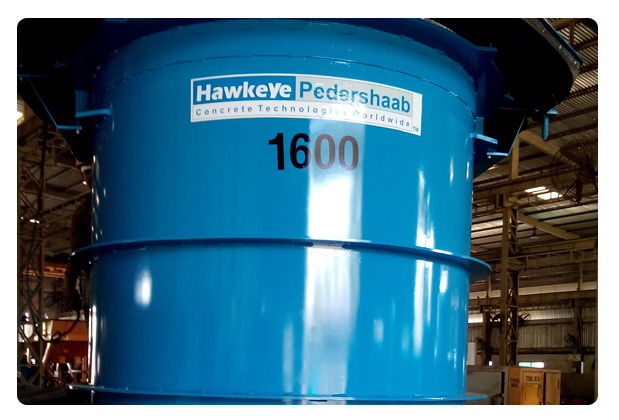
Well-designed pipe moulds ensure that the final product meets strength and dimensional accuracy standards. They also impact production efficiency and cost. Choosing the right pipe mould manufacturers is crucial for consistent quality and long-term performance.
This article explores the importance of RCC pipe moulds, key selection criteria, advancements in moulding technology and trends in the Indian market for pipe moulds.
The Impact of Pipe Mould Quality on Final Pipe Mould Product Performance
High-quality concrete pipe moulds directly impact the durability and strength of the final product. Poorly designed moulds can cause defects, reducing pipe longevity.
1. Pipe Mould Provides Structural Strength
- Precision-engineered RCC pipe moulds ensure pipes meet load-bearing requirements.
- Uneven moulds can cause weak spots, leading to cracks.
2. Concrete Pipe Mould Offers Surface Finish
- High-grade pipe moulds create smooth surfaces, reducing friction in water flow.
- Rough surfaces can lead to sediment build-up inside pipes.
3. Pipe Moulds Ensures Dimensional Accuracy
- Uniform pipe moulds ensure pipes fit perfectly in underground networks.
- Even slight variations can cause misalignment issues during installation.
Investing in superior concrete pipe mold results in better long-term performance and reduced repair costs.

Pipe Mould: Cost-Effective Tips
Producing pipe mould efficiently requires cost-saving strategies. Here’s how to improve mould operations while reducing expenses:
1. Concrete Pipe Invest in Durable Moulds
- High-quality concrete pipe moulds last longer and reduce replacement costs.
- Look for moulds with anti-wear coatings for extended use.
2. Optimize Concrete Mix Design
- Proper mix proportions prevent cracks and defects.
- Using the right concrete formula enhances mould performance and minimizes waste.
3. Regular Mould Maintenance
- Clean pipe moulds after every production cycle.
- Lubricate moving parts to prevent wear and tear.
4. Automate Mould Processes
- Automated concrete pipe making plants reduce labor costs.
- PLC-controlled systems ensure precise mould filling and vibration.
Using these strategies improves efficiency and reduces concrete pipe mould expenses.
How to Choose the Right Pipe Mould Supplier for Your Manufacturing Needs?
Selecting the right pipe mould suppliers can determine the success of your manufacturing operations. Here’s what to look for:
1. Industry Experience in Pipe Mould
- Established pipe mould manufacturers have proven track records.
- New suppliers may lack the expertise needed for complex projects.
2. Product Range
- Choose suppliers that offer a variety of moulds, including circular, non-circular and jacking pipe moulds.
3. Pricing and Value for Money in Pipe Mould
- Compare concrete pipe making machine price and mould costs before making a purchase.
- Lower prices should not come at the expense of quality.
4. Customer Reviews and Testimonials
- Look for client feedback on pipe mould manufacturers to assess reliability.
The right supplier ensures cost-effective and high-performance concrete pipe production.
Advancements in Pipe Moulding Technology: Trends to Watch
The concrete industry is evolving with new moulding technologies. The latest trends focus on automation, durability and precision.
1. CNC Machining for Mould Fabrication
- CNC machines create high-precision pipe moulds with minimal error.
- Better dimensional accuracy reduces material waste.
2. Quick Demoulding Systems
- Advanced concrete pipe moulds now include hydraulic demoulding systems.
- Faster demoulding increases production efficiency.
3. Corrosion-Resistant Coatings
- New coatings extend pipe mould life by preventing rust and wear.
- This reduces maintenance costs and improves mould reusability.
4. Automation in Pipe Moulding
- Automated pipe moulding systems reduce labor dependency.
- Smart sensors ensure even concrete distribution, improving product quality.
These advancements make concrete pipe moulds more efficient, cost-effective and reliable for large-scale production.
The Indian Market for Pipe Moulds: Demand and Supply Trends
The demand for concrete pipe moulds in India is growing due to urbanization and infrastructure projects.
1. High-Demand Cities for Pipe Moulds in India
- Mumbai & Delhi: Large-scale sewage and drainage projects.
- Chennai & Bangalore: Growing urban development requiring high-quality RCC pipe moulds.
- Ahmedabad & Hyderabad: Strong demand for concrete pipe mold in industrial zones.
2. Leading Pipe Mould Suppliers in India
Several cement pipe mould provide high-precision molds for large infrastructure projects. Companies are now focusing on:
- Custom-designed pipe moulds for different project requirements.
- Faster delivery to meet growing demand.
- Competitive pricing to attract local and international buyers.
With infrastructure growth on the rise, the Indian pipe mould market is expected to expand further.
Conclusion
Pipe Moulds play a crucial role in the production of high-quality concrete pipes. Choosing the right pipe mold ensures better structural integrity, efficiency and cost-effectiveness. With advancements in moulding technology, manufacturers can now produce durable pipes faster and with greater precision.
For businesses looking to invest in concrete pipe making machine India, selecting the right pipe mold suppliers and adopting modern automation techniques can lead to long-term success.
FAQs - Concrete Pipe Productions
Look for material quality, precision engineering, customization options and after-sales support.
High-quality pipe moulds ensure stronger, smoother and more accurate concrete pipes.
Automation, CNC machining, corrosion-resistant coatings and quick demoulding systems are key trends.
The concrete pipe making machine price and mould costs vary based on size, design and features.
Several pipe mould manufacturers in cities like Mumbai, Delhi, Chennai and Ahmedabad offer quality products.
Read More Articles on Pipe Mould Machines
- Drycast Pipe Mould vs. Wet Cast Pipe Mould: What’s the Difference?
- The Importance of Pipe Moulds and Applications in the Concrete Industry
- A Step-by-Step Guide for Using Pipe Moulds in Construction Projects
- Drycast Pipe Mould Production Process: Step-by-Step Guide
Recent Articles
- How Drycast Technology is Changing the Concrete Pipe Industry?
- Common Mistakes to Avoid When Selecting Pipe Moulds for Your Machine
- How to Match Your Concrete Pipe Making Machine with the Perfect Drycast Mould?
- How to Keep Concrete Pipe Machine and Drycast Moulds in Top Condition? Maintenance Guide
- Box Pallets & U-Drain Pallets: Essential Components in Modern Drainage Systems





 BACK TO ARTICLES
BACK TO ARTICLES